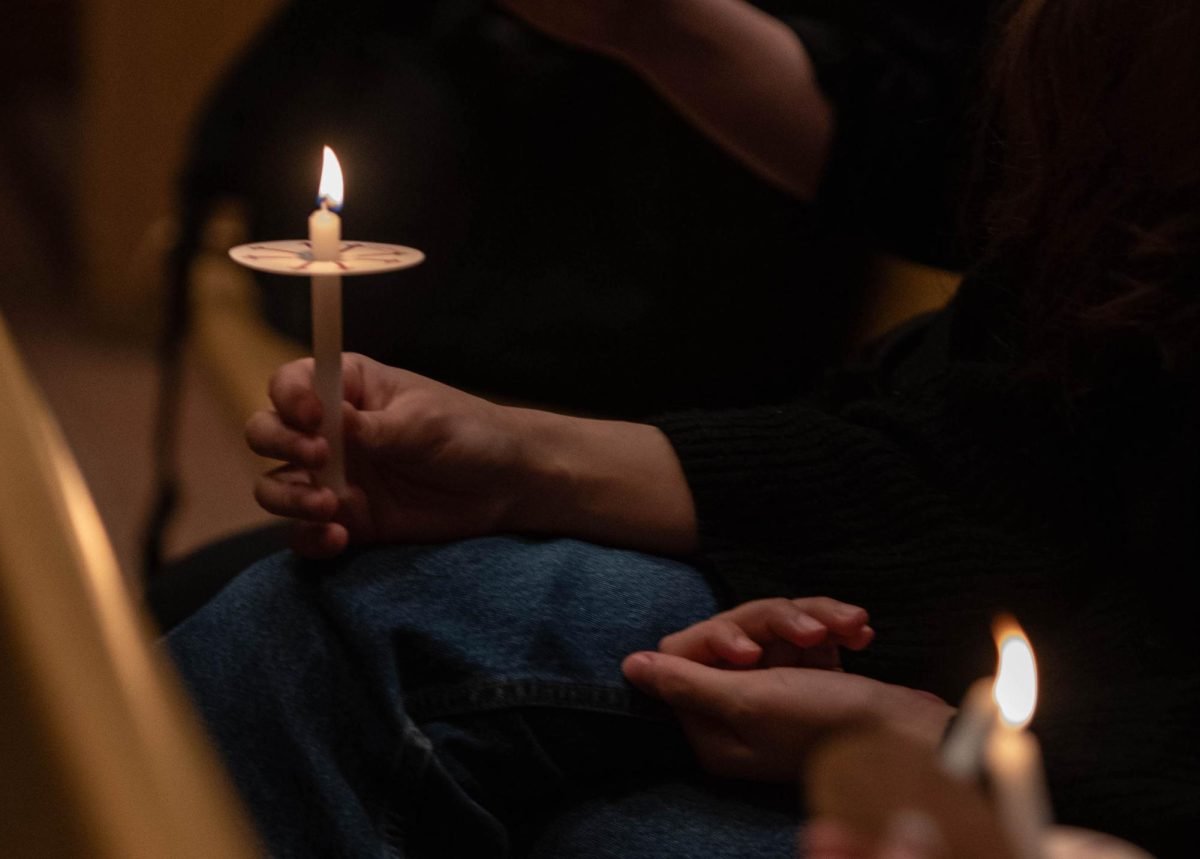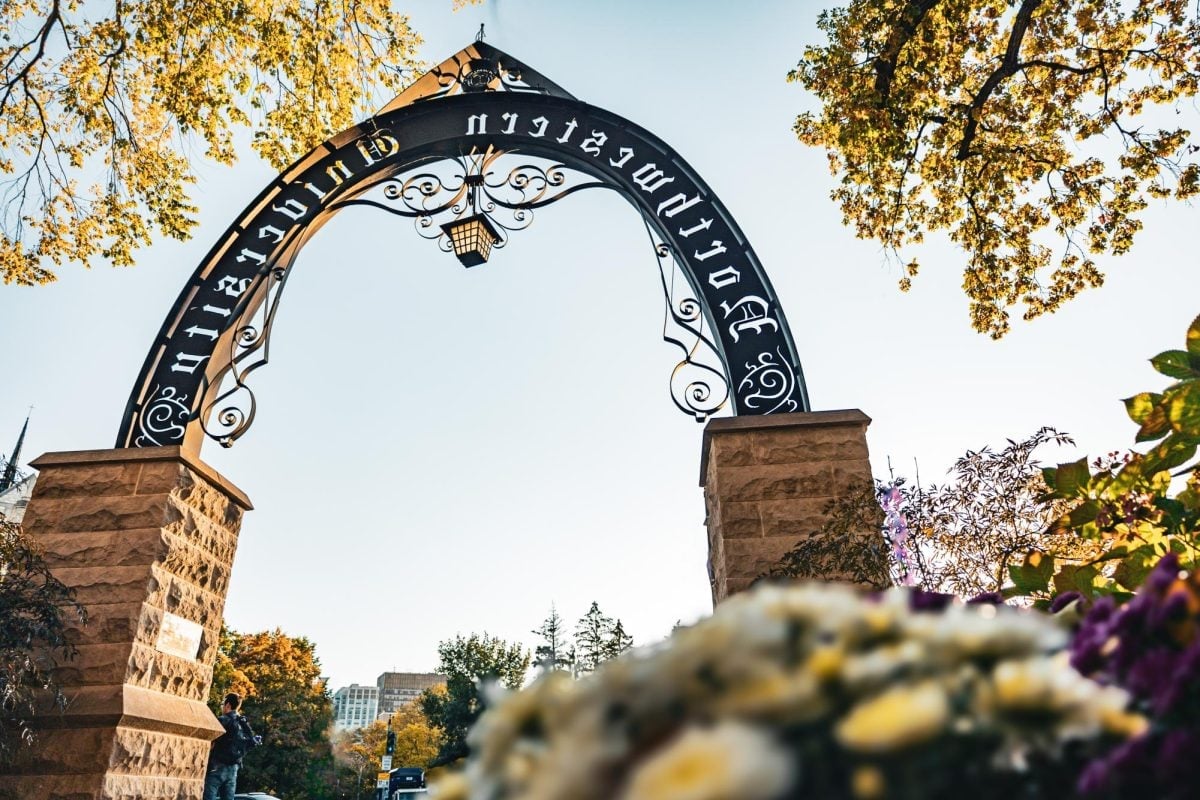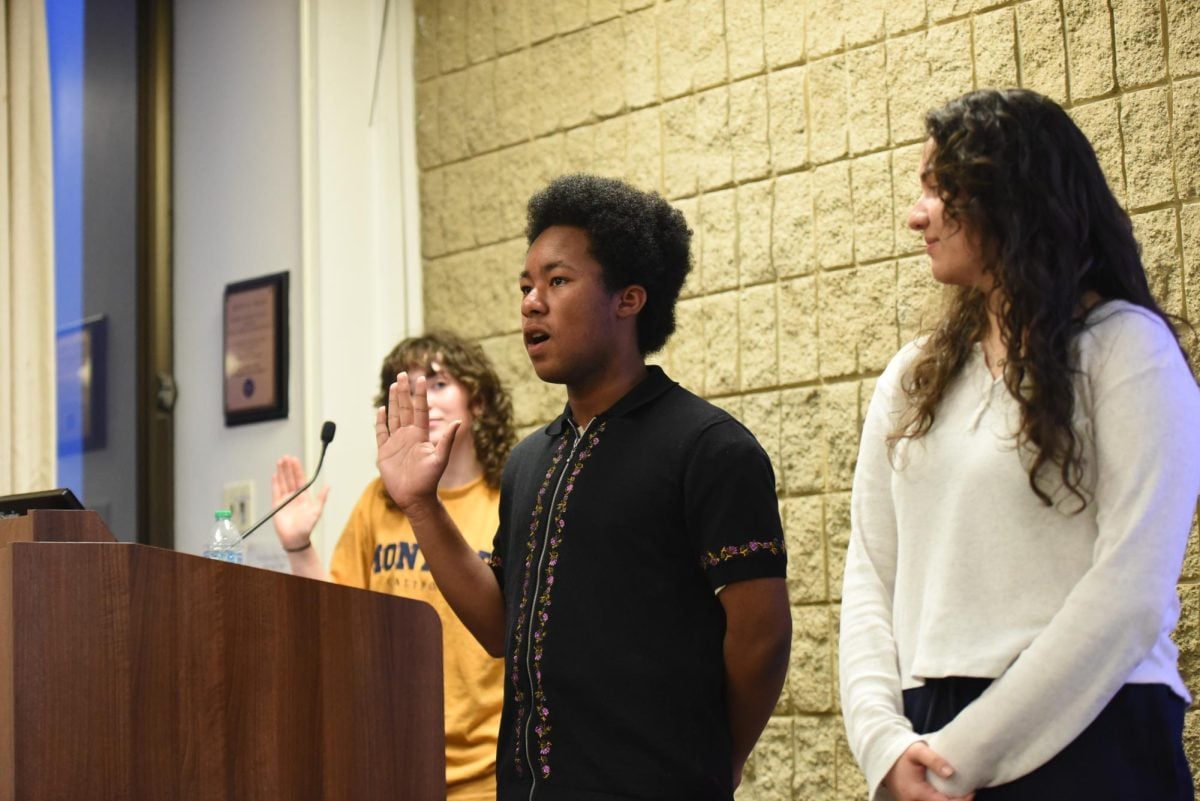Students gathered at Alice Millar Chapel Friday for a vigil organized by student group Northwestern for Ukraine. The vigil observed two years since Russia’s full-scale invasion of Ukraine began, and 10 years since the start of the Russo-Ukrainian War.
The night included heartfelt speeches, songs, candle lighting and a moment of silence for those killed during the war.
Weinberg freshman Vira Vitiv gave the opening remarks, which were followed by the playing of the Ukrainian national anthem.
Vitiv said the event’s purpose was to invite people to understand the conflict better and to highlight its impact on Ukrainian students.
“It’s not just a statistic, it’s a story of a person, of every person in Ukraine,” she said. “Your biggest worries are midterms when your family back home is thinking whether they’re going to live tomorrow. Having to live in that bubble filled with guilt is the daily life of a Ukrainian abroad.”
Over 10,000 civilians in Ukraine have died during the two-year invasion, according to the United Nations. 3.6 million Ukrainians have been displaced within the country, and 6.3 million Ukranians are seeking refuge abroad.
Northwestern for Ukraine members, including Weinberg freshman Yuliia Chernova, shared their own personal stories at the demonstration.
Chernova is from Kharkiv, a city only about 20 miles from the Russian border. She recounted her experience of one night in Kharkiv during the conflict.
“There were at least a thousand people in the subway station where my parents and I spent the night listening to explosions outside and frantically reading the news,” she said in her speech. “We figured that anything’s better than staying and decided to attempt to leave the city. I didn’t know if we would make it.”
Like Vitiv, Chernova said she is concerned for her loved ones in Ukraine. She said her parents live in Ukraine, and she fears for their safety every time she reads about a missile attack.
In her speech, titled “Irreversible,” Communication freshman Anna Selina said she remembers reading about the occupation of Shchaslyvtseve, the city where she has spent every summer vacation since she was 8 years old.
When she thinks about the 20,000 citizens killed in Mariupol over the past two years, she said she is reminded of her father’s greatest friends.
In her speech, Selina also described the long-lasting effects of the war on her personal life. Selina said she still feels a “metallic tightness” in her chest every time she sees fireworks. She said she was reminded of the time her thirteen-year-old sister suggested they hide in a wardrobe to escape nearby explosions.
“I was looking at her and thinking, ‘what wouldn’t I give for her to never learn what the explosions sound like?’ But she knows, and it is irreversible,” Selina said.
Many Ukrainians have traveled to other European countries or the U.S. to escape the crisis.
Selina said she believes there is a misconception that people who have fled Ukraine should feel relieved and grateful for leaving the war behind. She emphasized that it’s important to acknowledge how many people have been affected by the war, even if they have fled Ukraine.
“The fact they moved abroad does not mean they immediately healed,” Selina said. “It’s a nightmare that cannot stop no matter where you physically are.”
Email: gabrielbernick2027@u.northwestern.edu
X : @gabrielbernick
Related Stories:
— Nobel Prize winner Beatrice Fihn discusses abolishing nuclear weapons in the age of the Ukraine war
— Russian journalist Maria Lipman speaks on Russian citizens’ sentiments toward the war in Ukraine







